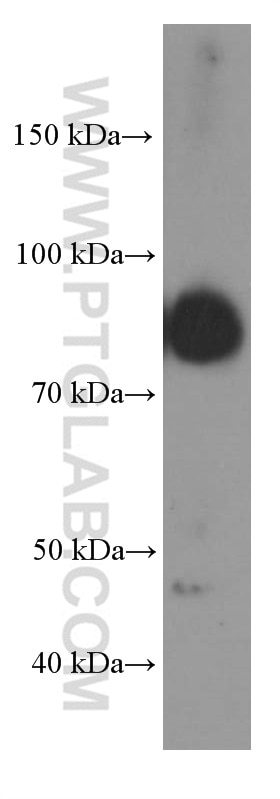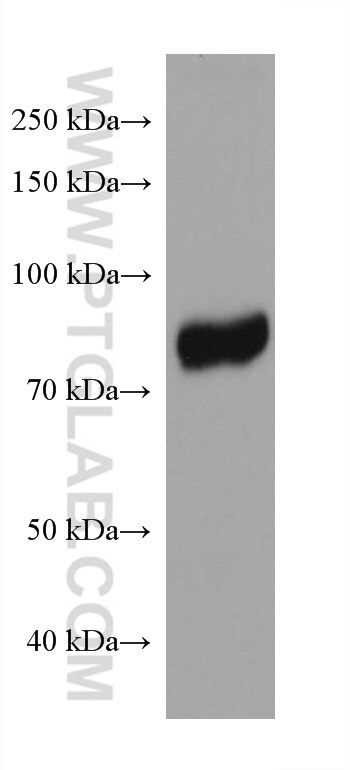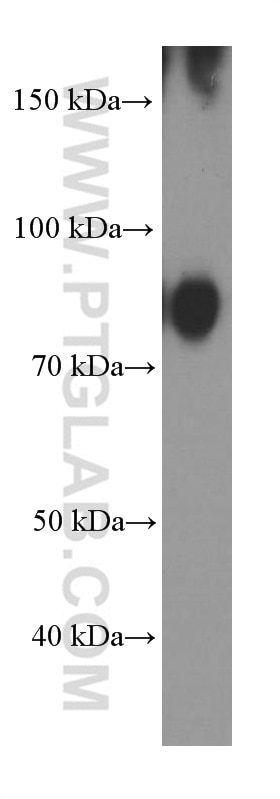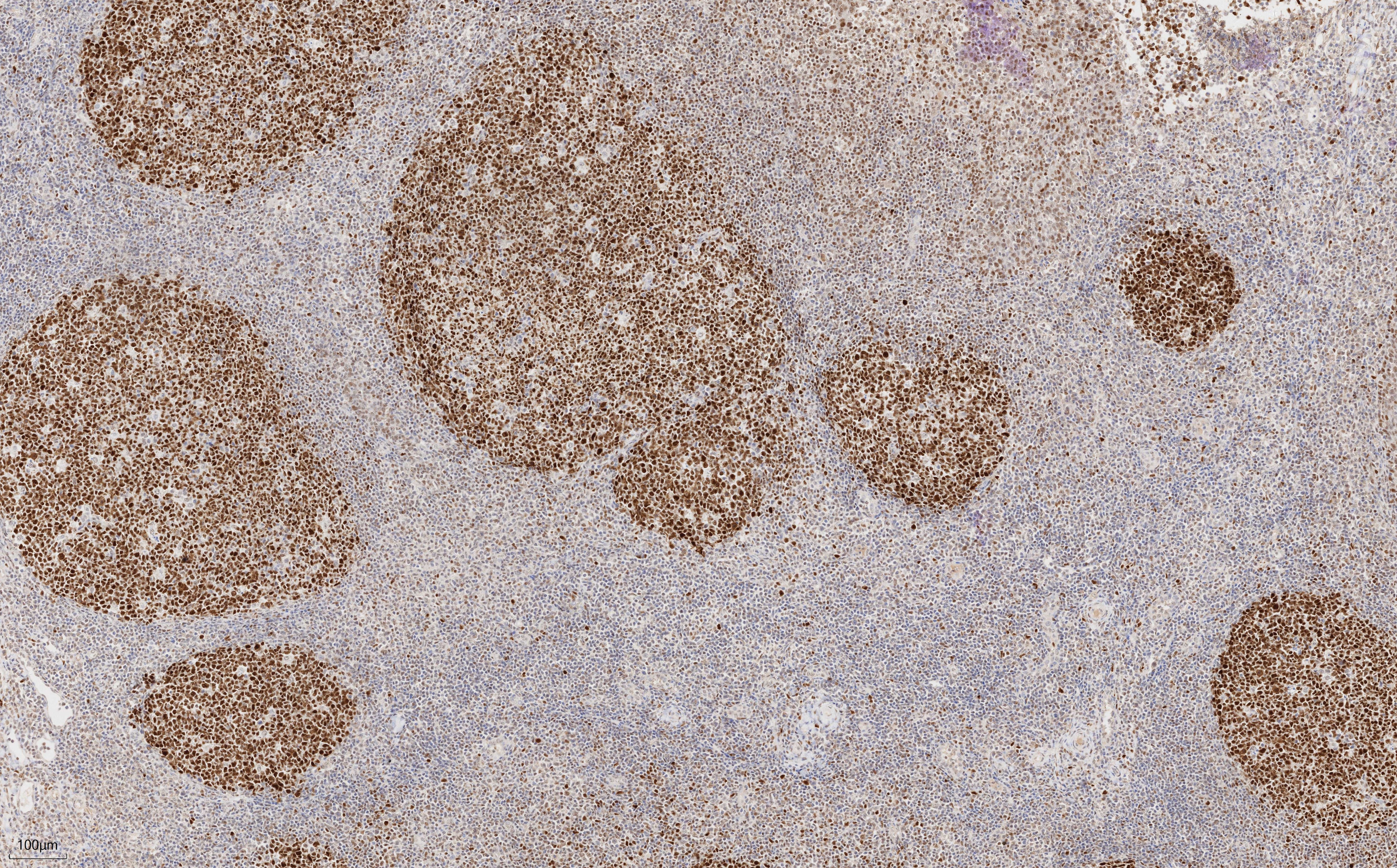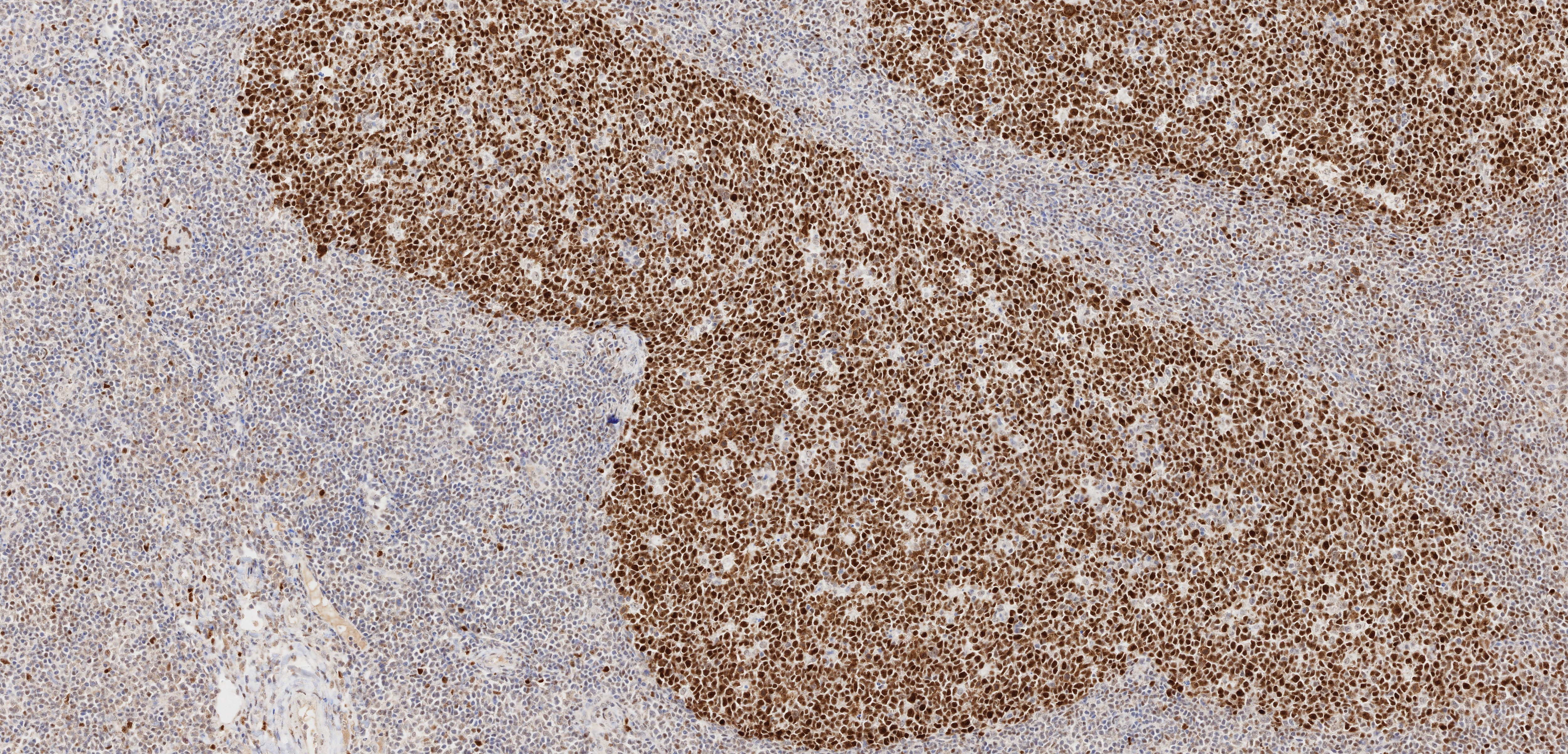BCL6 Monoklonaler Antikörper
BCL6 Monoklonal Antikörper für WB, IHC, ELISA
Wirt / Isotyp
Maus / IgG1
Getestete Reaktivität
human und mehr (1)
Anwendung
WB, IHC, IF, ELISA
Konjugation
Unkonjugiert
CloneNo.
1E6B1
Kat-Nr. : 66340-1-Ig
Synonyme
Geprüfte Anwendungen
| Erfolgreiche Detektion in WB | Daudi-Zellen, Raji-Zellen, Ramos-Zellen |
| Erfolgreiche Detektion in IHC | humanes Tonsillitisgewebe Hinweis: Antigendemaskierung mit TE-Puffer pH 9,0 empfohlen. (*) Wahlweise kann die Antigendemaskierung auch mit Citratpuffer pH 6,0 erfolgen. |
Empfohlene Verdünnung
| Anwendung | Verdünnung |
|---|---|
| Western Blot (WB) | WB : 1:5000-1:50000 |
| Immunhistochemie (IHC) | IHC : 1:2000-1:8000 |
| It is recommended that this reagent should be titrated in each testing system to obtain optimal results. | |
| Sample-dependent, check data in validation data gallery | |
Veröffentlichte Anwendungen
| WB | See 1 publications below |
| IHC | See 7 publications below |
| IF | See 3 publications below |
Produktinformation
66340-1-Ig bindet in WB, IHC, IF, ELISA BCL6 und zeigt Reaktivität mit human
| Getestete Reaktivität | human |
| In Publikationen genannte Reaktivität | human, Maus |
| Wirt / Isotyp | Maus / IgG1 |
| Klonalität | Monoklonal |
| Typ | Antikörper |
| Immunogen | BCL6 fusion protein Ag15519 |
| Vollständiger Name | B-cell CLL/lymphoma 6 |
| Berechnetes Molekulargewicht | 706 aa, 79 kDa |
| Beobachtetes Molekulargewicht | 85 kDa |
| GenBank-Zugangsnummer | BC150184 |
| Gene symbol | BCL6 |
| Gene ID (NCBI) | 604 |
| Konjugation | Unkonjugiert |
| Form | Liquid |
| Reinigungsmethode | Protein-G-Reinigung |
| Lagerungspuffer | PBS with 0.02% sodium azide and 50% glycerol |
| Lagerungsbedingungen | Bei -20°C lagern. Nach dem Versand ein Jahr lang stabil Aliquotieren ist bei -20oC Lagerung nicht notwendig. 20ul Größen enthalten 0,1% BSA. |
Hintergrundinformationen
BCL6, a zinc finger transcription factor, contains an N-terminal BTB/POZ domain and C-terminal zinc finger DNA-binding motifs and represses transcription of a wide range of target proteins and microRNAs. BCL6 protein has been reported as a master regulator of B lymphocyte development and growth, and altered BCL6 protein expression was implicated in pathogenesis of diverse human hematologic malignancies, especially in the diffuse large B cell lymphoma (DLBCL). BCL6 is required for the development of T follicular helper T cells (TFH), a helper T cell subset required for the formation of mature and productive GCs. BCL6 has also been shown to play important regulatory roles in macrophages.
Protokolle
| PRODUKTSPEZIFISCHE PROTOKOLLE | |
|---|---|
| WB protocol for BCL6 antibody 66340-1-Ig | Protokoll herunterladen |
| IHC protocol for BCL6 antibody 66340-1-Ig | Protokoll herunterladenl |
| STANDARD-PROTOKOLLE | |
|---|---|
| Klicken Sie hier, um unsere Standardprotokolle anzuzeigen |
Publikationen
| Species | Application | Title |
|---|---|---|
Nat Commun B cells sustain inflammation and predict response to immune checkpoint blockade in human melanoma. | ||
Clin Transl Med Single-cell transcriptome sequencing of B-cell heterogeneity and tertiary lymphoid structure predicts breast cancer prognosis and neoadjuvant therapy efficacy | ||
Front Immunol A Standardized Analysis of Tertiary Lymphoid Structures in Human Melanoma: Disease Progression- and Tumor Site-Associated Changes With Germinal Center Alteration. | ||
iScience Tertiary lymphoid structure and decreased CD8+ T cell infiltration in minimally invasive adenocarcinoma. | ||
Cell Death Dis B-cell lymphoma 6 alleviates nonalcoholic fatty liver disease in mice through suppression of fatty acid transporter CD36. | ||
Front Oncol Clinical Impact of the Histopathological Index and Neuroimaging Features Status in Primary Central Nervous System Diffuse Large B-Cell Lymphoma: A Single-Center Retrospective Analysis of 51 Cases. |
